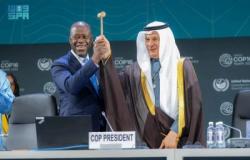Economic Chronicle –
Nobel 2024 in economics: the pipe of peace within the discipline?
Paul H. Dembinski welcomes the three Nobels, representing an “institutional” movement little rewarded by this prize.
Chronic Published today at 11:24 a.m.
Economist Daron Acemoglu in Athens, economist Simon Johnson in Washington, and economist James A. Robinson in Chicago (left to right).
AP PHOTO
Subscribe now and enjoy the audio playback feature.
BotTalk
After the harvest of literary prizes at the start of the school year, comes the Nobel Prize season in the fall, including that of economics. The latter was attached to the train of the original Nobel Prizes in 1969 by the Central Bank of Sweden, which has administered and financed it ever since. The late birth of this prize can be explained by hesitations about the epistemological status of economic science. Indeed, it is thanks to the formalization (mathematization) of so-called neoclassical economic theory and thanks to the increased use of statistics (econometrics) from the mid-20th centurye century, that its status as a “hard” science was recognized by the Bank of Sweden, as opposed to the human and social sciences which were too “soft”, too indecisive to be “real” sciences. However, despite the creation of the Prize, the debate on the epistemological status of economics is still not closed between the various currents which claim their right to citizenship in the discipline. It is also from this perspective that the choice of the 2024 winners is interesting. A few weeks ago, the award went to three researchers based in the United States, Daron Acemoglu, Simon Johnson and James Robinson, who have been working for more than a quarter of a century on the relationship between political institutions and countries’ income levels. .
By immediately including political institutions as an explanatory variable in their research, the three researchers recognized that economic “laws” can give different results depending on the institutional contexts. For a social science researcher, such a hypothesis is not surprising, it is natural. It is different for those who have their eyes fixed on the neoclassical theory of growth according to which, in a world of free trade, per capita incomes should converge. To explain the effective absence of this convergence, the three researchers used extra-economic variables. They thus demonstrated two things: on the one hand, political institutions weigh heavily in the prosperity equation – which is what they were rewarded for – and, on the other hand, they showed the neoclassical school of thought that economic phenomena are only fully understandable with the help of other social sciences, in particular political science here. The great indirect contribution of the Nobelists to the fact that they convinced the Prize Committee that the discipline is incomplete if it is restricted to working only on economic variables stricto sensu.
The institutional trend in economics has a long history, it can be traced back to the German historical school of the 19the century, even to Karl Marx. In the 20the century we must mention economists like Th. Veblen, W. Mitchell or, more recently, JK Galbraith. During the second half of the century, the institutional trend was marginalized by the seductive power of neoclassical theory and its formalization which was believed to be forever enthroned by price as the dominant trend. During the years of the triumph of neoclassical orthodoxy, heterodoxy (including institutionalism) survived by moving closer to social sciences and more mundane questions such as development or the post-communist transition.
The Nobel Prize committee made its first opening towards minority currents in 1993, with Douglass North, economic historian, whose work focused on the way in which the search for performance – specific to human beings – influences change. institutional and the appearance of new institutional forms, like the limited company in the 19the century. North was the first institutionalist to be knighted by the Nobel committee. This year’s three winners, almost thirty years after North, follow in his footsteps. Is this a parenthesis in the reign of orthodoxy or an opening towards the harmonious coexistence of a plurality of approaches within an economic science reconciled with the social sciences? Has the time for the epistemological peace pipe finally come?
“The Tribune of Opinions”
With the Tribune of Opinions, find analyzes, editorials, readers’ letters, expert opinions… So much insight to form your own opinion every Monday.
Other newsletters
Log in
Did you find an error? Please report it to us.
0 comments







